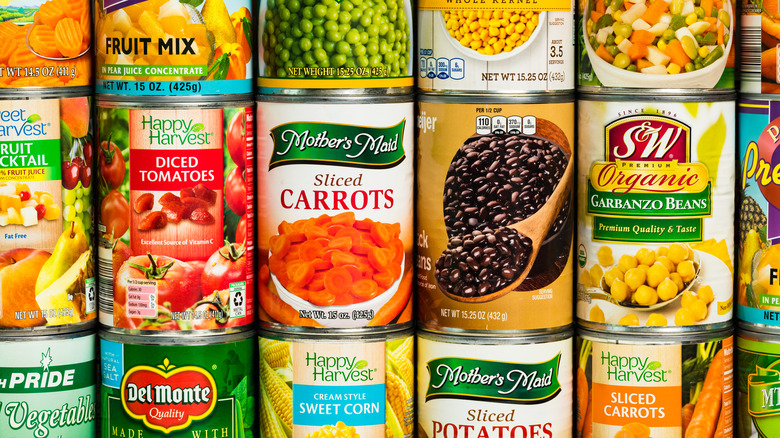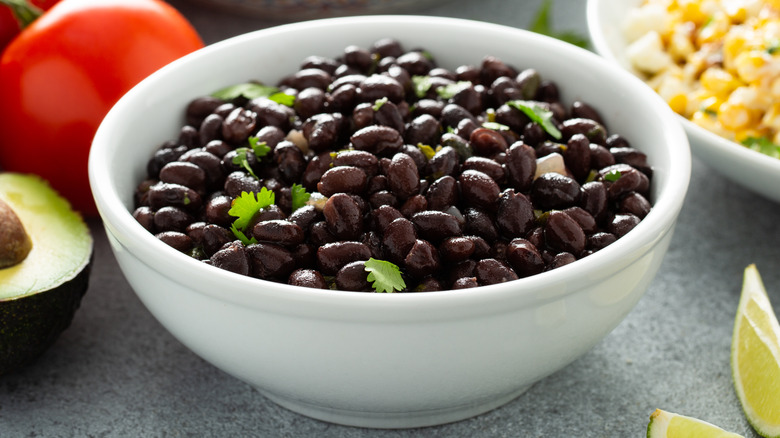How Canned Food Brand Heyday Wants To Spice Up The Industry
The canned food industry is better known for its long history than its recent innovations. Smithsonian Magazine reports that the process of preserving foods through canning dates back to the early 1800s when it was first invented by Nicolas Appert. Even though canned foods are a longtime pantry mainstay, the industry had been shrinking in recent decades. The New York Times notes that sales of canned foods had seen a steady decline over the years, and as recently as 2017 General Mills closed a Progresso canned soup plant due to shrinking demand. Instead, people in the U.S. were purchasing fresh food more often, due to the perception that it is healthier than canned options.
Of course, demand for canned food shot up dramatically during the pandemic, as consumers were seeking to stock up on shelf-stable food that would last them through a two-week quarantine period at a minimum and limit their number of trips to the grocery store. Thanks to this need, a whole new audience was exposed to the wonders of canned foods. A July 2022 market analysis shared a revised prediction for the canned food industry, which is now expected to grow by nearly $50 billion in the next four years.
And now canned food startup Heyday is arriving on the scene, launching a new line of canned foods in an attempt to mix things up in this growing market.
Inspired by bold flavors
According to Food Navigator, startup Heyday Canning Co. is launching its first line of canned foods that will be arriving on the shelves of Sprouts stores and online around November of this year.
Founded by former Clif Bar and Sweet Earth employees Kat Kavner and Jaime Tully, Heyday's first launch will consist of six different sauce-simmered canned bean options inspired by flavors such as kimchi, coconut curry, and enchiladas. The new line was developed by Kavner and Tully in partnership with recipe developer Ali Slagle, who has worked for notable outlets like the New York Times and Bon Appétit.
The two founders told Food Navigator they were inspired to get into the market while shopping for canned food during the pandemic. Realizing the canned food industry had become stagnant, the pair felt that the market was perfect for a new wave of consumers that might want something more from their canned food options. Their consumer testing found that more people are drawn to shelf-stable, ready-made foods like these for the convenience and reduced food waste.

